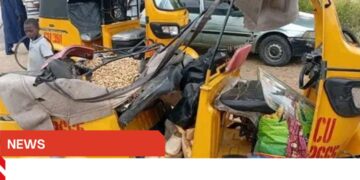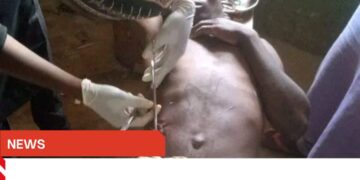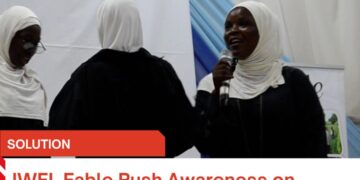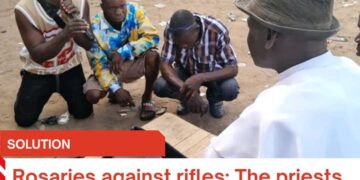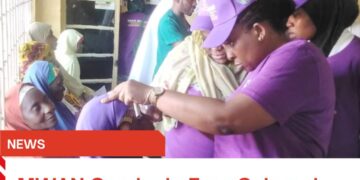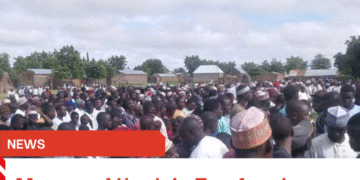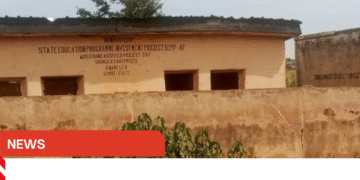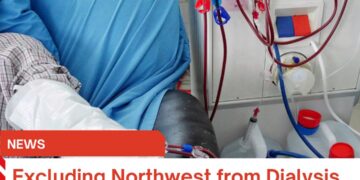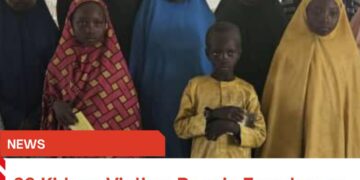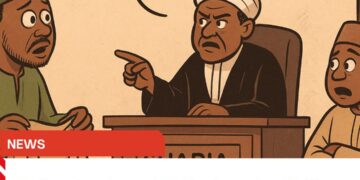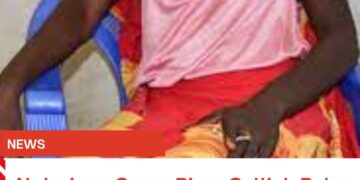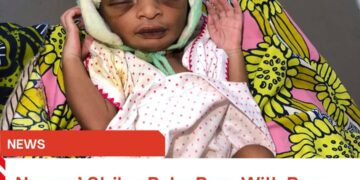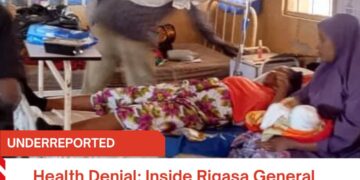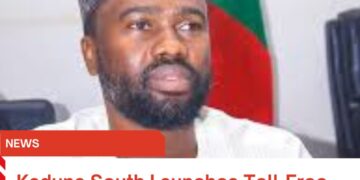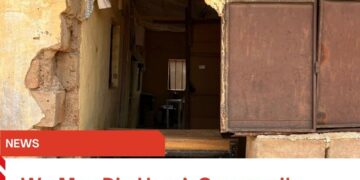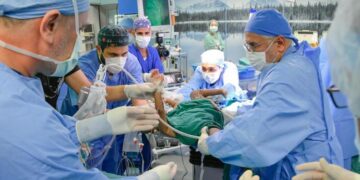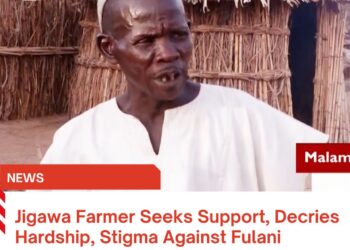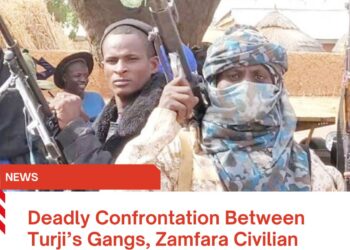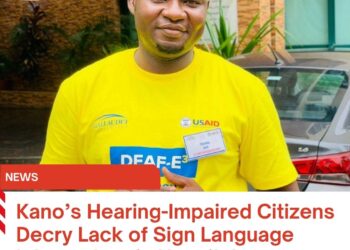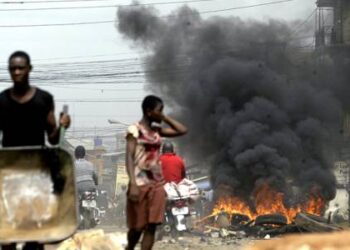At the beginning of the year, Kaduna-based Islamic cleric, Dr Ahmad Gumi, commenced a daring peace mission to Fulani communities noted for banditry and kidnapping. Gumi has so far visited communities along the Kaduna-Abuja highway, Gamagira in Soba LGA and Kidandan in Giwa LGA. He speaks with Daily Trust on what motivates him to embark on the Islamic propagation and peace initiative.
In the last one month you have been visiting Fulani communities to preach to the Fulani and those suspected to be bandits, what is the motivation behind your action?
The motivation is the precarious security situation in the country. This has made us to study the root causes of these challenges, especially coming from the nomadic herdsmen. We realized that they lack both Islamic and western education. We realized also that they lack basic knowledge, especially religious education and so we decided that it is better to go and confront them in their abode, rather than wait for them to come and be kidnapping, killing and raping people.
How many communities have you visited so far?
So far, we have visited three communities; one in the vicinity of Jere LGA along Kaduna-Abuja highway, another in the vicinity of Gamagira in Soba LGA and the last was Kidandan in Giwa LGA, which we visited on Tuesday.
Have any weapons been submitted to you in the cause of your peace tour?
They have not submitted any weapon and we don’t require them to submit any now. But what we are doing now is a familiarization tour, opening their hearts and listening to their grievances while we are giving them assurances that things are going to change for the better. What surprised us is that they have pledged that this is the end of their insurgency and they have laid out their own conditions. We want to show them that our mission is not military styled but ours is the religious and humanitarian style and so we are extending the carrot to them.
What were the conditions they gave?
What we found is that they have been forced into this insurgency. Not all of them are criminals and we also found out that an ABU graduate was part of them while one of the commanders can speak English fluently. What happened is that they are victims of the collateral damage of military incursions into their areas and innocent families have been killed and so they joined the bandits, and to make it worst, the society brought in an uncalled-for ethnic colouration to it. These are people who are not different from the folks in town, only that they are nomadic. So, it has reached the extent that they cannot go into towns and markets because they will be lynched. They have been confined to the bushes and so they find themselves pressed to harm the society just the way the society is harming them.
When we speak with them, they say they blame the government. Well, the government has to be blamed because they need to take proactive steps to see that there are amenities in their area; they don’t have electricity, even water, there is no presence of government there. So these are the things government needs to do to end this insecurity.
As you move to some of these dangerous terrains, don’t you fear for your safety?
I am not afraid of the bandits. I am more afraid of those people who capitalize and exploit them. When we asked some of the bandits why they kidnap people, they said they don’t know the rich people, they don’t go to towns but there are people in the cities who ask them to attack certain rich people. So, the bandits are only agents. When the ransom is paid, it belongs to those people in the town, the bandits are only paid operational fee. If you see them, they are tattered. One of the commanders was wearing slippers and you just can’t see any sign of the millions on them. So, those are the people I fear because we live in the city with them and because they fear that we are trying to break their chain or hold on their agents. The people I fear are those that are capitalizing on the weakness of the Fulani to indoctrinate them with their own ideology.
During your visit to Kidandan on Tuesday, the Commissioner of Police was with you, what is the working relationship with security agents like?
They have been very cooperative. We only tell them we want security cover and tell them where we are to go and they go with us.
Have they ever discouraged you from going to a certain community because of insecurity?
No, they have not.
What about the political arm of the state and federal government?
We didn’t want it to be political. This is apolitical. There is no politics in this. What we are doing is humanitarian. People are left without any assistance and so we are taking some assistance to them and we are teaching them Islam. But I believe, in time, politicians will come in to assist and the government will show its willingness. Kaduna State government, I can say has a part in this in the sense that I came in contact with this Fulani thing when I was selected by the Kaduna Peace Commission as one of the scholars asked to mediate on the Southern Kaduna crisis.
When it comes to peace, for me, even if two rams are fighting and you ask me to mediate, I will. The governor of Kaduna State is doing well in that instance and they have sponsored our trip to Southern Kaduna where we spent two days and met with the different warring factions.
There are insinuations that the Kaduna State government is indirectly asking you to do this after it publicly declared its aversion to dialogue with bandits. How true is this?
The government has a Peace Commission and what they are saying is that they will not go into truce with any criminal. On my part, I am saying that I don’t see them as criminals, I see them as people who need the carrot, not the stick. Therefore, there is divergence in approach. They are using the stick and I’m using the carrot. Since the government has given us the mandate to seek peace, I believe peace is with the carrot because of the peculiarity of the situation. In fact, when we went to Southern Kaduna, I said this is an unequal conflict because the other side is organized, they have schools and hospitals and the other side has zero and so nothing to lose. If you want to mediate, you should make the other person have a sense of belonging. What we are trying to tell the government is that these people have been left behind, they need schools and hospitals to feel as citizens.
Where are you getting funding to visit these communities and even assist them materially?
We are getting donations from individuals and students but it is very inadequate. We are however managing and the Fulani themselves are making efforts because they made the canopies available and they arranged everything during our last visit.
Do you really see hope of repentance among the commanders?
These people are repenting in front of me. I have seen it. They are repenting.
How do you think the issue of banditry and kidnapping could finally be brought to an end?
We have to go in, entice them to register for the national ID, develop a Civil Defence Force composed of them and their commanders. That means to get the villains to be the police and once you have them on your books, they will make sure there is no kidnapping, just the way the Niger Delta militants were dealt with.
But do you think this can be sustained?
It can, but we need to also sustain our contact with them. We were there on Tuesday and we will return again. We are thinking of bringing their leaders for further discussions. If things go well, we will encourage the government to go into amnesty with them. Just recently, the Speaker of the House of Representatives said he would ensure that victims of the #EndSARS are given compensation before the budget is passed, so what, it is the same thing, the victims of all the collateral damage done to the Fulani, if you pay them diyya (compensation) they will stop this.
But what about the victims of these bandits themselves?
That is criminality. Only about 10 per cent of them are criminals, 90 per cent are not criminals but those that are criminals, their case should be studied. Who did they kill and if there is amnesty, then government should look at the victims, address it and compensate them.
Do you have the blessings of the President in your peace mission and have you been in contact with the presidency?
No. I have not been communicating with any government apart from the Kaduna State government but from what I heard from the Fulani, the issue should be on the table of the president. So it is just to makes sure that he heard their grievances and also suggest to him what the solution is. I don’t want any intermediary because the President is a person I know. I also want to make sure he understands what I am doing and what needs to be done. Nobody has seen me in Aso Rock or near it but for this reason, I will go.
Have you reached out to the presidency already?
Let them hear in the news that I am coming, so they can get ready.



